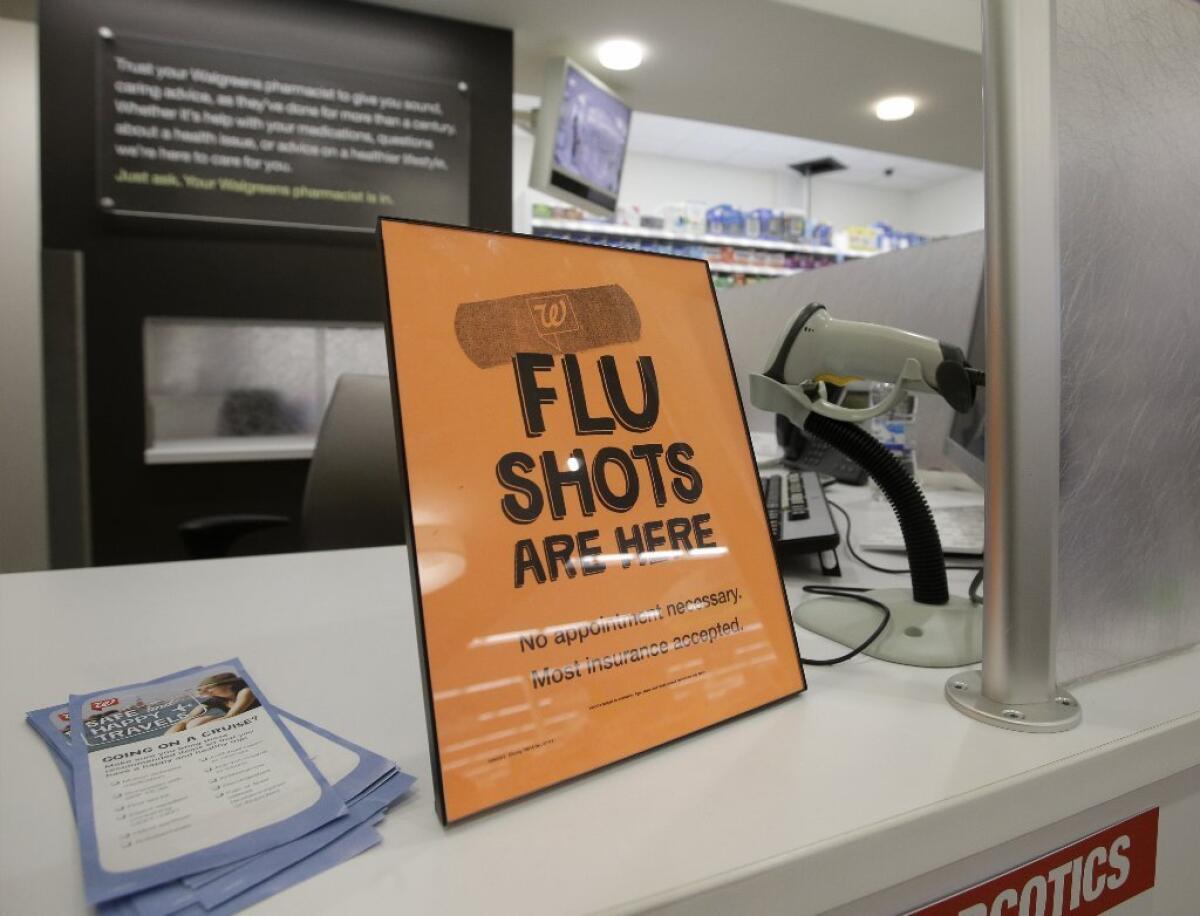Opinion: Is the flu really more dangerous to Americans than Ebola? It depends.

A common meme to have emerged from concerns about Ebola virus in the United States is for people to “go get a flu shot,” the idea being that the people worry too much about a disease that is of little threat to them (Ebola) and not enough about one that is estimated to kill at least 3,000 people a year (seasonal influenza).
It is true that Americans overestimate the threat from Ebola. Despite a few cases in the United States, there are no known cases of Americans having caught the disease from people who came here from West Africa, except for two Dallas nurses who treated Liberian national Thomas Eric Duncan, and reportedly without adequate protective garb.
At the same time, the flu analogy is a bad one. It wouldn’t appreciably lower the mortality figures from influenza if more generally healthy people younger than 65 got their vaccinations. In other words, the general adult population is not wrong to think of flu as not much of a threat to their lives.
Flu is an airborne illness, in contrast to Ebola. That’s one reason the number of flu cases will always be far higher than those of Ebola cases in the United States—and consequently why the number of flu deaths would be higher overall. But Ebola is the far deadlier disease because of its much higher mortality rate—50% or more in the recent West African outbreak.
Beyond that, almost all of the people whose deaths are related to flu in the United States are elderly patients whose immune systems are weaker and who are more likely to suffer from conditions that are easily worsened by influenza, such as congestive heart failure or chronic obstructive pulmonary disease. According to the U.S. Centers for Disease Control, 90% of flu-related deaths occur among people 65 and older. Small children, pregnant women and people with chronic illnesses such as diabetes are also at higher risk.
In other words, although flu vaccines are extremely important for older people and others with weaker immune responses, a dramatic increase in vaccines among adults younger than 65 would barely budge the number of deaths from influenza, which is already very low among that population. It makes a cute sound bite, but although flu shots are a generally good idea, any comparison to Ebola threat is pretty much a non sequitur.
There is another valid reason, though, for people to get flu vaccines as a way of responding to concerns about Ebola: Health experts point out that, given the level of nervousness about Ebola, people who catch the flu, which has similar symptoms, are more likely to panic and head to an emergency room. Preventing flu would prevent a lot of fear and false alarms, keep emergency rooms less crowded and help flu sufferers avoid expensive medical overreaction.
Follow the Opinion section on Twitter @latimesopinion
More to Read
A cure for the common opinion
Get thought-provoking perspectives with our weekly newsletter.
You may occasionally receive promotional content from the Los Angeles Times.











